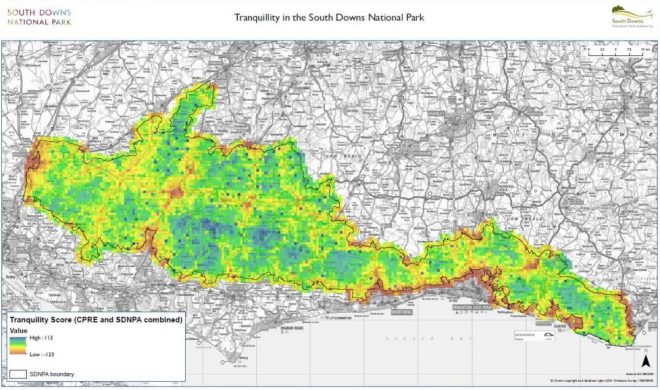Shhh! It’s National Quiet Day
September 12, 2018
Shhh! Wednesday 12 September was National Quiet Day. To mark the occasion we took a look at ‘Tranquillity’ one of the seven special qualities of the South Downs National Park.
Tranquillity is considered to be a state of calm and quietude. It relates to quality of life, and there is good scientific evidence that it also helps to promote health and well-being.
Tranquillity is recognised as important nationally – for example, our current national planning policy says that we should recognise the value tranquil areas have in our society and protect them accordingly.
Here in the South Downs tranquillity is an important part of our landscapes’ character. Tranquil and unspoilt places are valued by visitors and the people who live here. In a very busy and pressurised part of the country these undeveloped places and areas of good quality dark skies are especially important.
But how do you measure as personal an experience as tranquillity?
To find out where the truly tranquil places are we used methodology first developed by Natural England and the Campaign for the Protection of Rural England (CPRE). Together with a team of volunteers we carried out surveys on 350 different sites in the National Park looking at 44 different factors that contribute towards, or have an impact on, tranquillity. All the data was logged on a mobile App and the different factors were then related and scored so that they could be put on the map below which shows the relative tranquillity of sites across the National Park, the green and blue points are the most tranquil. It’s just one part of the evidence developed to support the South Downs Local Plan – now being examined by a Government Planning Inspector.

Tranquility isn’t a fixed state. Things change over time. Given how important it is to protect and enhance tranquil places we plan to build on this research in the future.
Read the South Downs National Park Authority’s Tranquillity Study 2017
